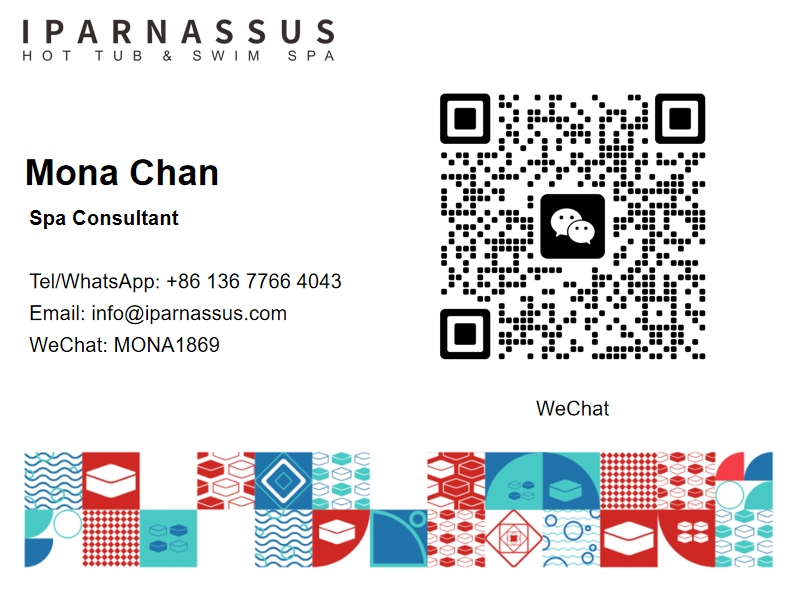Can You Go in a Hot Tub with Poison Ivy?
2024-10-14 15:07:46
The inviting warmth of a hotel hot tub offers a delightful sanctuary, especially after an exhausting day filled with travel or exploration. Yet, for those who have recently encountered poison ivy, the prospect of enjoying this soothing experience can lead to significant uncertainty. The query, "Can you go in a hot tub with poison ivy?" frequently arises among individuals eager to reap the therapeutic benefits of hydrotherapy while simultaneously managing their skin condition. In this blog post, we will delve into the potential risks associated with using a hot tub following exposure to poison ivy.
We will examine how the heat and moisture of a hot tub can interact with the affected skin, potentially aggravating irritation and discomfort. Additionally, we will outline effective treatment protocols that should be followed to alleviate symptoms and promote healing. Finally, we will identify key indicators that signal when it is safe to immerse yourself in a hotel hot tub post-recovery. By understanding these crucial aspects, you can make informed decisions that prioritize your health while still allowing you to enjoy the relaxation that a hot tub provides.
What Are the Risks of Entering a Hotel Hot Tub with Poison Ivy Exposure?
Encountering poison ivy can lead to an intensely itchy and uncomfortable rash, which becomes increasingly aggravated by heat and moisture. Although a hot tub, with its inviting warm and bubbling water, may appear to be a comforting sanctuary for relief, it can paradoxically worsen the situation. The elevated temperatures in a hot tub promote increased blood flow to the skin, potentially exacerbating the irritation and prolonging the healing time necessary for recovery.
Moreover, the humid environment of a hot tub can further inflame the rash, leading to heightened discomfort and sensitivity. An equally pressing concern is the potential for spreading the urushiol oil— the culprit behind the poison ivy rash— to other bathers or contaminating the communal water. This not only poses serious risks to one's personal health but also raises significant public health issues, as unsuspecting individuals might unknowingly come into contact with the irritant. Therefore, it is crucial for anyone who has been exposed to poison ivy to carefully weigh these risks before considering a dip in a hot tub, prioritizing both their own well-being and that of fellow guests.
How to Properly Treat Poison Ivy Rash Before Using a Hot Tub?
Before contemplating the use of a hot tub, it is essential to effectively treat any poison ivy rash to ensure both comfort and safety. Over-the-counter remedies, such as calamine lotion or hydrocortisone creams, can significantly alleviate itching and diminish inflammation associated with the rash. Additionally, oral antihistamines are often advisable for managing allergic reactions, further promoting relief from discomfort.
It is crucial to resist the urge to scratch the rash, as this can lead to secondary infections and exacerbate the situation. To facilitate healing, one should keep the affected area clean and dry, applying treatments as directed. Once the rash has been adequately treated and deemed non-contagious, a hot tub may be considered safer for use. However, even at this stage, it is wise to proceed with caution. The warm environment of a hot tub can still provoke irritation, so monitoring your skin’s reaction during your soak is imperative. By taking these preventive steps, you can enjoy a soothing experience while minimizing any potential risks associated with poison ivy exposure.
Is It Safe to Use a Hotel Hot Tub After Recovering from Poison Ivy?
Once you have fully recovered from a poison ivy rash, which is no longer contagious, the thought of relaxing in a hotel hot tub might be appealing. However, it’s crucial to confirm that your skin is entirely healed before indulging in this activity to prevent any potential reactivation of symptoms. Even when the visible signs of the rash have disappeared, the affected skin can remain sensitive for some time. Therefore, it is advisable to enter the hot tub slowly and cautiously, paying close attention to how your skin responds to the warm water.
Furthermore, it is highly recommended to inform the hotel staff about your previous exposure to poison ivy. This transparency enables them to carry out appropriate cleaning measures, ensuring a safe environment for both you and other guests. By taking these precautions, you can enjoy the soothing experience of the hot tub while minimizing any risks associated with lingering skin sensitivity. Ultimately, being mindful of your condition and communicating effectively with hotel personnel will enhance your overall experience, allowing you to relax without concern for your skin or the health of others around you.
Conclusion
While the allure of alleviating the discomfort associated with a poison ivy rash in a hot tub is certainly tempting, it is crucial to prioritize both your skin health and the well-being of those around you. Engaging in proper treatment for the rash and ensuring that it has completely healed—along with confirming that it is no longer contagious—will allow you to enjoy the therapeutic benefits of a hotel hot tub without jeopardizing your recovery or inconveniencing fellow guests.
Taking these necessary precautions not only helps to safeguard your own skin but also fosters a responsible approach to shared facilities. It’s essential to give your body the time it needs to heal adequately, as even after the visible symptoms have subsided, lingering sensitivity can pose risks. By exercising patience and caution, you can fully embrace the relaxation and rejuvenation offered by a hot tub experience while maintaining an environment that is safe and enjoyable for everyone. Ultimately, prioritizing health and communication will enhance your leisure experience, allowing you to unwind without any reservations.
References
1. "Poison Ivy Exposure and Skin Care" - American Academy of Dermatology
2. "The Dangers of Using a Hot Tub with a Skin Rash" - SkinHealthInstitute.org
3. "How to Treat Poison Ivy Rash Effectively" - DermatologicalTherapy.com
4. "Heat and Skin Conditions: A Guide" - HeatAndSkin.com
5. "The Contagious Nature of Poison Ivy" - InfectiousDiseasesJournal.com
6. "Hotel Hot Tub Etiquette and Health Considerations" - HospitalityEtiquette.com
7. "Recovering from Poison Ivy: When Is It Safe to Swim?" - AquaticSafetyGuide.com
8. "Skin Sensitivity After Poison Ivy Rash" - SensitiveSkinRecovery.com
9. "The Role of Antihistamines in Poison Ivy Rash Treatment" - AllergyMedicineReview.com
10. "Post-Rash Skin Care: Guidelines for Using a Hot Tub" - PostRashSkinCareTips.com



